As a dog owner, you must like the puppy and desire to have a puppy from your dogs after a considerable time. The raising of a healthy puppy is a challenging task. To get a healthy and sound puppy, you must know minutely about puppy care: many dog owner losses their puppy at a very young age due to ignorance about primary puppy care, and management.
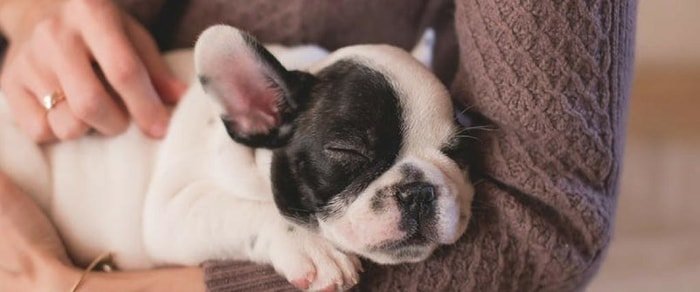
Basic Puppy Care
The environment of the puppies influences a lot on the behavior of its adult life. This early socialization period is concise, lasting for only several months. At this stage of life, the puppies learn to behave with human and other dogs. The primary puppy care includes socialization, training, health issues, and pack behavior.
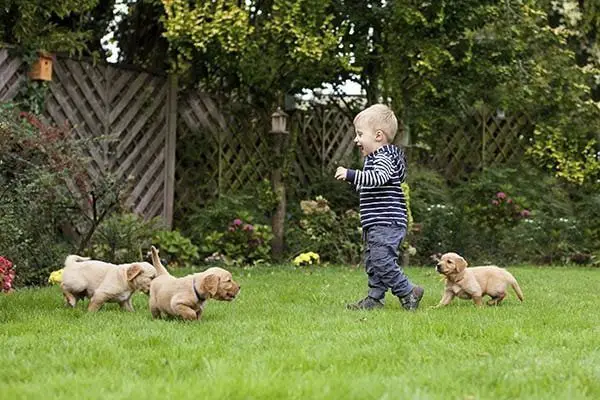
The primary lesson learned from its mother at a very young age. They should be routinely handled, groomed regularly, and exposed to the sights and sounds that will be part of their adult lives.
Puppy should eat and play with other puppies so that they understand the nuances of pack behavior and body language. Eating in a group, puppy experiences this early socialization, you will make it an ideal companion for life.
Read Also: The Ultimate Dog Care And Management Guide For You As Dog Lover
Puppy Care- Feeding of Puppies
Feeding of newborn puppies is significant in puppy care and raising of a healthy puppy. In the following table, you will be able to know the essential feeding of puppies up to 8 weeks of age.
| Age | Type of food | Number of feeds daily |
| Three weeks old | Milky porridge or cereal and mother’s milk | Two milky meals.Plus feeding by mother |
| Four weeks old | Hard-boiled or scrambled egg yolk; milky cereal; finely minced, cooked meat or prepared puppy food; water and mother’s milk. | One egg meal or one cereal meal, and one minced meat or puppy food meal. Plus normal feeding by mother. |
| Five weeks old | Hard-boiled or scrambled egg yolk; milky cereal; finely minced, cooked meat or prepared puppy food; water and mother’s milk | One egg meal or one cereal meal, and one minced meat or puppy food meal. Plus normal feeding by mother by mother if she will allow it. |
| Six weeks old | Minced, cooked meat or prepared puppy food and puppy biscuits. Give milk if tolerated. Mother’s milk should have newly dried up. | Four meat and biscuit meals. Plus one egg or cereal meal if the puppies will eat it.Drinks of cow’s or goat’s milk and water. |
| Seven weeks old | Increase amounts of meat and biscuits. Water should always be available. Give milk if tolerated. Mother’s milk should have wholly dried up. | Four meat and biscuit meals. Plus one egg or cereal meal if the puppies will eat it. Drinks of cow’s or goat’s milk and water. |
| Eight weeks old | Increase amounts of meat and biscuits. Water should always be available. | Four meat and biscuit meals. Pus drinks of cow’s or goat’s milk and water. |
Puppy Care At Four Weeks of Age
There are many care and training you will start at the four weeks of age of your puppy. The behavior, care, and preparation of young puppies are as follows:
- Socialization of puppies with other puppies is essential in puppy care. At four weeks of age, the senses are developed. Puppies should receive mental stimulation and learn how to behave with other dogs through regular play activity. They may be kept in a pen so that they can become adjusted to their surroundings without being frightened.

- Eating Together Feed puppies together rather than separately. This will ensure that they are not possessive over their food as adults.
- Early Grooming A longhaired puppy, such as this Cocker Spaniel, needs daily to keep the puppy’s coat clean and satisfies its need for mothering.
- Daily handling By handling a puppy several times daily it will learn to accept being picked up and held by humans. Early obedience training from four weeks old will lead to good habits in later life. If you teach a puppy to stand or sit for its meal now, it will naturally do so as an adult.
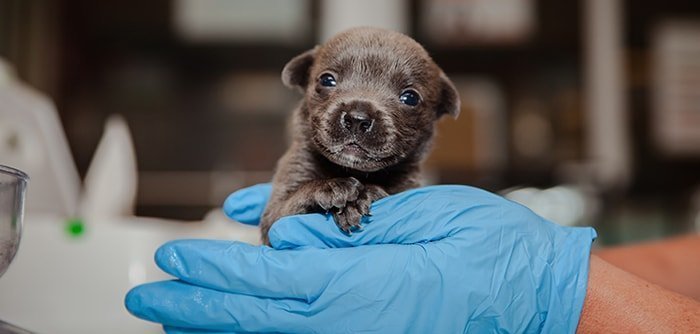
Puppy Care At Eight Weeks of Age
At the eight weeks of age, your lovely puppies grow more and their brains developed to a significant condition to receive more command. This time you will train your puppy and instigate more social behavior to your puppy. These are as follows:
- Family Mealtime- Be sure to provide growing puppies with frequent, nutritious meals necessary for both growth and the maintenance of their bodies.
- Willing obedience Training-At eight weeks old the puppy is used to being handled and stands quietly alert when held. The puppy’s coat has now changed to its adult color pattern.
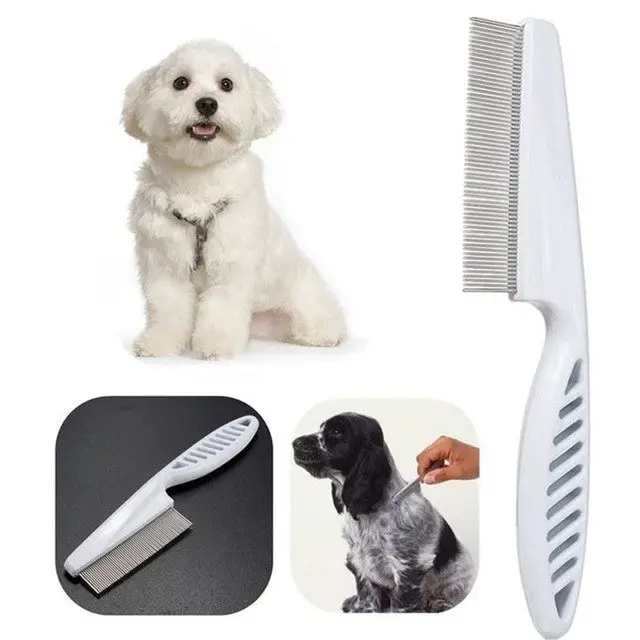
- Brush and comb-When acquired a new puppy, start routine grooming immediately. Grooming and stroking are dominant gestures. The puppy will interpret this as a sign of dominance, and grow up to be an obedient dog.
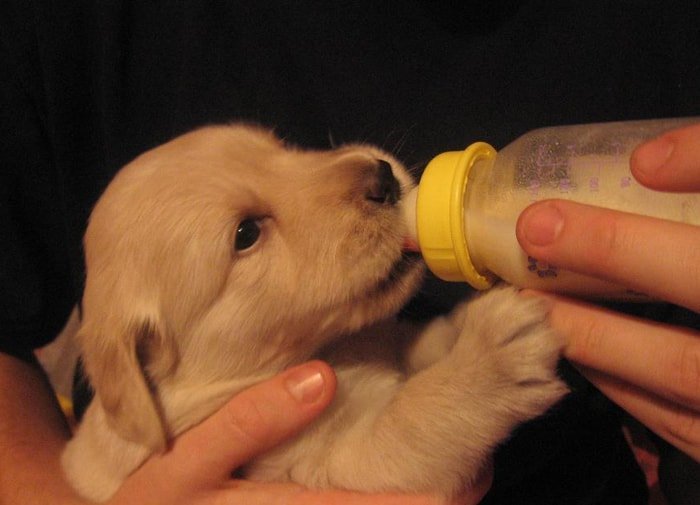
- Leaving home-At eight weeks old the puppy is ready to go to its mother and move to its new home. It must be vaccinated against infectious diseases such as parvovirus and distemper. Early mental and physical stimulation ensures that it is now a confident young dog, able to cope with its exciting new world.
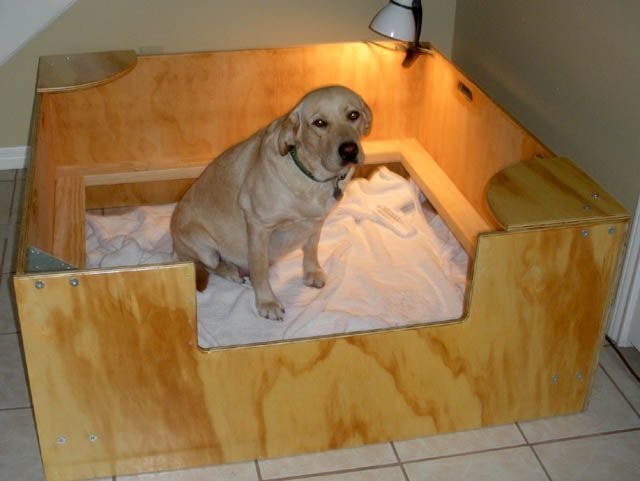
Preparation of Whelping Box for Puppy Care
Familiarize, the bitch with her whelping box at least a week before she is due to give birth. Position it in a quiet and secluded place where she feels secure. The whelping box offers security for the newborn puppies by preventing them from wandering off. Poles prevent the mother from accidentally lying on the puppies. Keep equipment, such as disinfectant, towels, and scissors, within reach, and make sure a vet is on call.
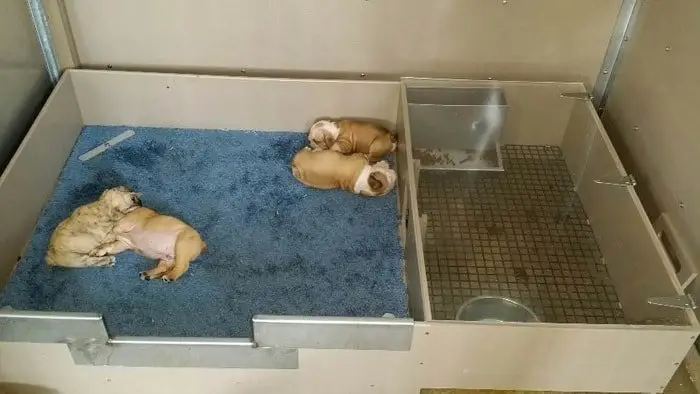
Puppy Care Just After Birth
The expectant mother goes off her food between one and two days before birth. She becomes restless and seeks out her whelping box. Shortly before labor, her water bags break, leaving a puddle of fluid that can be mistaken for urine. Initially, contractions are simple, but they soon become firm and productive. The first puppy should be delivered within two hours, then subsequent ones at intervals of between ten and eighty minutes.
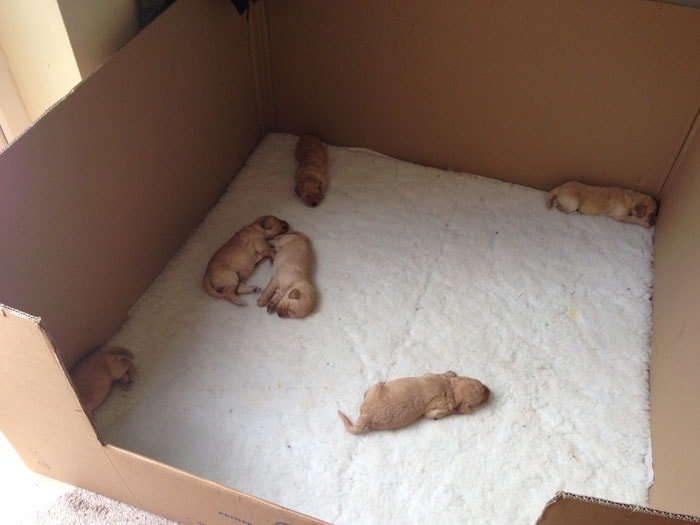
- The bitch starts to pant when the first contractions begin. Her temperature drops and she appears restless and a little tense. Watch her make sure that she does not hide away.
- The bitch stands and circles while she contracts. Other dogs prefer to lie down for the delivery. Let the dog find her preferred position for giving birth.
- Although this is her first litter, the mother instinctively examines her newborn puppy. She has already licked the enveloping membrane off its body. Now she chews off the umbilical cord separating the puppy from the placenta, which she later consumes.
- The newborn puppy is licked vigorously by its mother. This dries and warms the puppy, clears away any mucus from its mouth and nose, and stimulates it to breathe.
- After the work and discomfort of delivery the mother rests. This gives time for her muscles to become resilient again, ready for further contractions.
- Now more relaxed, this mother lies down and prepares to deliver further puppies. Mother does not start feeding their litter until after last delivery. Make sure that there is one placenta delivered for each puppy.
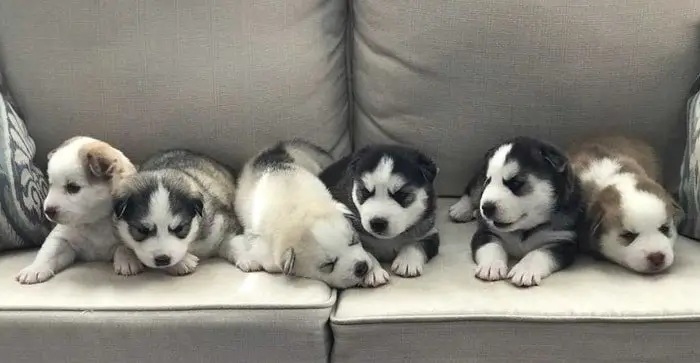
- Hearing a puppy cry, the mother retrieves it from where it has wandered and carried it back to the litter. Mothers will only respond to crying. If a youngster wanders off and does not cry, the mother may abandon it.
- All the puppies have now been delivered. The mother settles down and allows the litter to suckle together for the first time. Contact a vet if the mother cannot produce sufficient milk.
- As the bitch feeds her litter, she licks one of her puppies. She will touch each puppy’s anogenital region to stimulate it to empty its bowels and bladder and will consume all its body waste for the next three weeks. In the wild, eliminating all signs of the litter would protect the newborn puppies from predators.
During Puppy Care When to Call a Vet
It would help if you let the vet know when a delivery is underway in case of any emergencies. Get medical advice if contractions have not begun within two hours of the water breaking, or if a puppy has not emerged after 15 minutes. Non-productive labor may mean a breech birth or large puppies. Cesarean delivery is standard for breeds of dog with large heads and in small races with small litters of puppies.
Puppy Care – Skin and Eyes
A dull coat can indicate a poor diet or a skin problem like parasites or infection, but it is also an important signal that there may be disease somewhere in the body in the newborn puppy. So it is essential to care a new pappy to protect different types of skin diseases.
Although there are many inherited and acquired eye diseases, changes in the eyes are often indicators of more complex diseases elsewhere in the body. The eye examination gives the vet clues to concentrate attention.
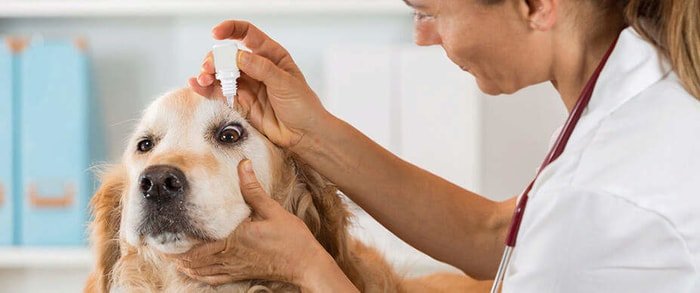
- Applying Eye Drops: Several common eye disorders can stimulate excess tear production or a discharge from the eyes. If the left was overflowing, these discharges could stain the dog’s facial hair. Before applying for any medicine, gently soften, then wipe away any debris from the corners of the eyes with
- Moistened cotton wool: Using either warm water or a particular eye-wash solution provided by a vet, irrigate the eye. Do not use eye drops intended for humans. Be careful not to get any cotton-wool fibers on the eye itself.
- Gently restrain the dog and hold the eye open. Bringing your hand to the eye from above and behind so as not to frighten the dog, whelping gently squeeze the required number of drops on to the eye. Allow the eye to bathe in the medication.
- Applying Eye Ointment: You may have to administer eye ointment for certain conditions. This will be used in a line along the inside of the lower eyelid. Do not let the nozzle tough the dog’s eye.
- Hold the dog’s eye closed for a few seconds so that the ointment warms to the dog’s body temperature and disperse over the eye. The eye will initially look greasy, but will soon clear.
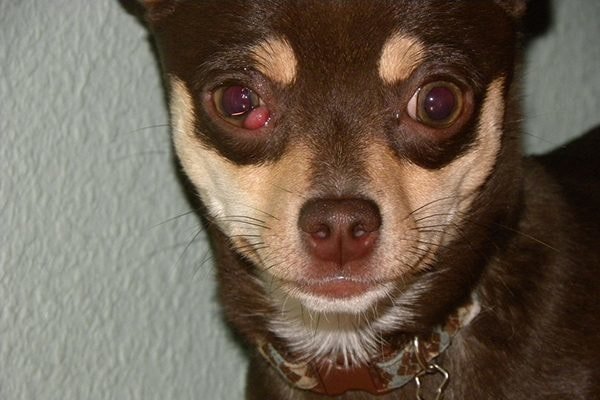
Final Advice on Puppy Care
In my above article, you have got the basic idea on puppy care, feeding, preparation of whelping box and primary care of skin and eyes of your puppy. Moreover, you should have a thorough knowledge of vaccination and health care of puppies. Whelping box and the house of puppies is, and the temperature control is one of the crucial matter.